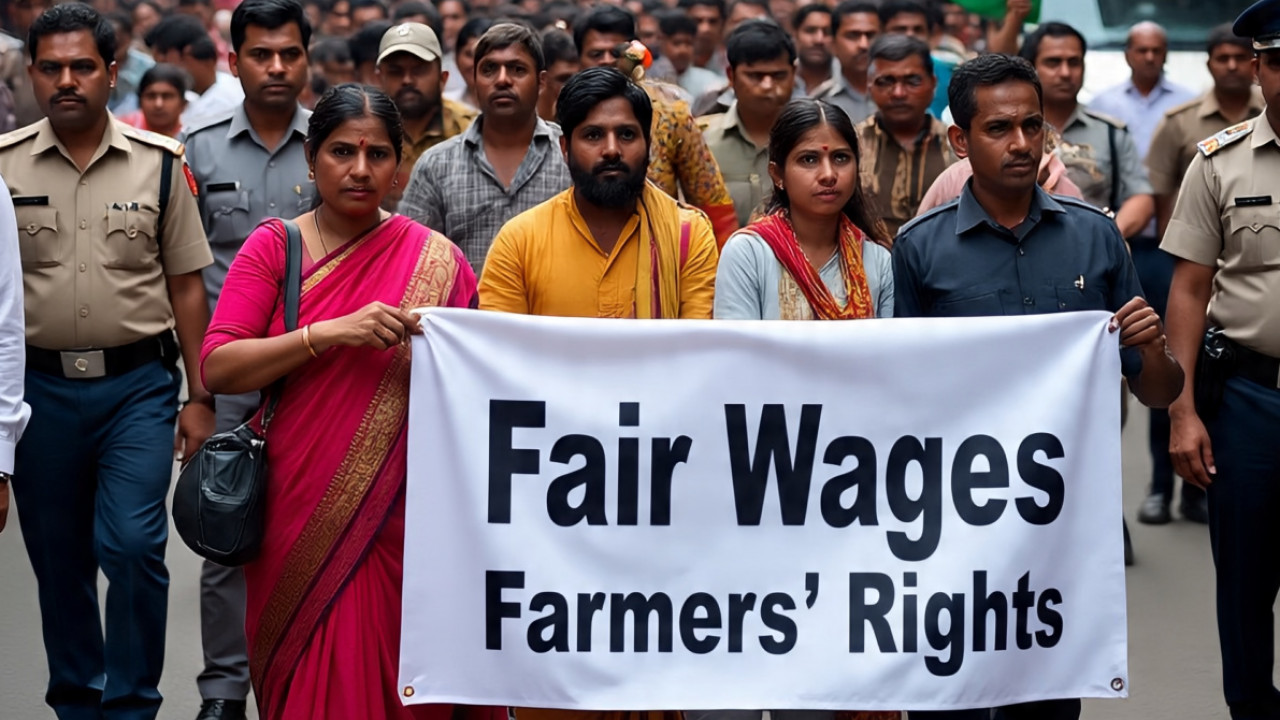
Nationwide Shutdown Today
National News: The voice of the people is set to echo once again across the streets of India. On Wednesday, more than 250 million (25 crore) workers and farmers from across the country are expected to participate in a massive protest and strike against the central government’s economic policies, labor reforms, and privatization efforts. Key sectors such as banking, insurance, postal services, transport, coal, and construction may face significant disruptions due to the strike.
Leading labor unions have emphasized two major demands—setting the minimum monthly wage at ₹26,000, and the reinstatement of the old pension scheme (OPS). They argue that the four labor codes introduced by the government have severely undermined workers’ rights and are fundamentally anti-labor in nature.
Major rural and agricultural organizations like the Samyukta Kisan Morcha (SKM), NREGA Sangharsh Morcha, and other agrarian labor groups have extended their support to the strike. Their core demands include a legal guarantee for Minimum Support Price (MSP), complete farm loan waivers, and an expansion of rural employment schemes to ensure livelihood security.
Employees from key public sector undertakings like NMDC, coal companies, steel industries, and various state government departments are also likely to join the protest. Labor unions have emphasized that this is not merely a strike, but a call for social and economic justice.
On the other hand, the Bharatiya Mazdoor Sangh (BMS), affiliated with the Rashtriya Swayamsevak Sangh (RSS), has chosen to stay out of the protest. BMS leaders claim that the strike is politically motivated and advocate that dialogue is the more constructive approach to resolving such issues.
The protesting groups have also raised concerns over rising unemployment, urging the government to initiate large-scale recruitments. They oppose policies that allow for the reappointment of retired personnel, arguing that such practices block opportunities for the youth. Additionally, there's a strong push for launching an urban version of the MNREGA to support unemployed individuals in cities.
This is not the first time workers and farmers have united on a national scale. Similar strikes were held in 2020, 2022, and 2024. However, this time, the movement appears to be more organized, coordinated, and far-reaching, with growing support from both urban and rural sectors.
The key question now is, how will the government respond to this widespread discontent? Will it engage in meaningful dialogue or choose to ignore the movement? What’s certain is that this strike represents a powerful collective voice of India’s workers and farmers, demanding long-overdue reforms and justice.





Copyright © 2026 Top Indian News
